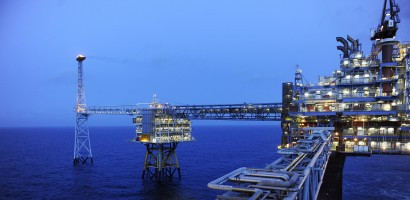
Central Europe Energy Partners (CEEP), an association of companies and organisations from Central Europe working with the European Union, is organising a May 10th summit this year in Vilnius on the common energy policy in Europe. The summit is being held under the patronage of the Prime Minister of the Republic of Lithuania, Algirdas Butkievičiusa, and the Minister for Energy Jaroslavas Neverovičiusa.
Central Europe Energy Partners (CEEP), an association of companies and organisations from Central Europe working with the European Union, is organising a May 10th summit this year in Vilnius on the common energy policy in Europe. The summit is being held under the patronage of the Prime Minister of the Republic of Lithuania, Algirdas Butkievičiusa, and the Minister for Energy Jaroslavas Neverovičiusa.
It will also be attended by Günther Oettinger, the EU Commissioner for Energy; Jerzy Buzek, a former Polish prime minister and former president of the European Parliament, and Paweł Olechnowicz, Chairman of the Board of Directors of Central Europe Energy Partners.

Since 2012, CEEP has been organising this gathering of the 29 largest companies in the energy sector in Central Europe with Commissioner Oettinger, in the form of a so-called annual meeting. The meetings take place in Central European capitals and are an excellent opportunity for EU top representatives and businessmen from 11 countries in the region to exchange views. This year's '29+1' Summit will take place in Vilnius, the capital of Lithuania, which from July 1st will be assuming the presidency of the Council of the European Union.
– The formula for the '29 +1' energy summit was already successfully tested last year in Budapest – says Paweł Olechnowicz, Chairman of the Board of Directors of Central Europe Energy Partners. – On the basis of that meeting, CEEP prepared the 'Budapest Memorandum', which was met with high praise UE commissioners. The principal goal of this and future meetings of the '29 +1' is to ensure that Central European energy sector companies speak in Brussels with one voice. Only in this way can we build a common European energy market and increase the economic potential of our region.
This year, CEEP commissioned a report on how energy prices affect the competitiveness of the European energy sector. Development of the document was entrusted to Roland Berger Strategy Consultants, which concluded that low energy prices and the use of indigenous raw materials are the key factors in the development of Central Europe and the EU in the current macroeconomic situation. The EU's proposal for a uniform energy policy across the entire Community will be extremely difficult for the countries of Central Europe to achieve. Primarily, the proposal calls for a systematic increase in energy prices, which will effectively inhibit the growth of the countries that joined the EU in the 2004 and 2007 enlargements.
The data in the CEEP report shows that to fulfil energy sector policy by 2020, the countries of Central Europe would have to invest from EUR 400 to 460bn in energy production, transport and efficiency. While 11 Central European countries now constitute 21% of the population across the EU, their economies produce only 8% of the GDP of the entire Community. In 2011, industrial production accounted for 32% of the EU11's GDP. By comparison, in the 'old member states' the rate was 24%. This shows how important industrial production is to the Central European economies, which are now the major force behind the development of the EU. Implementation of the current climate package, and fulfilment of the significant energy price increases it prescribes, would then not only significantly inhibit the growth of the Central European economies, but also greatly reduce the competitiveness of the EU on the global economic map.
Central Europe Energy Partners (www.ceep.be)
June 2013 marks the third anniversary of Central Europe Energy Partners (CEEP). Its primary purpose, as the first organisation of its kind in the region representing the interests of the Central European energy sector (including gas, shale gas, coal, oil, renewables, nuclear, power grids, etc.), is to promote integration with EU common policies and promote security in the energy sector. It also serves to represent the interests of its members. Currently, CEEP consists of 19 companies from the Czech Republic, Lithuania, Poland, Romania, Slovakia and Hungary, employing more than 300,000 people and having a combined annual turnover of EUR 34bn.
Additionally, CEEP is an active participant in the International Energy Agency (IEA). It also works closely with the London-based EUCERS (European Centre for Energy and Resource Security), and representatives of the association regularly participate in consultations with EU institutions, including on legislative initiatives.
CEEP's main task in 2013 will be to continue to promote and facilitate integration of Central Europe's energy sector within the framework of EU energy and climate policy. In full support of the EU's 20-20-20 targets, the association will also continue to represent Central European interests, ensuring that they are presented in a clear and consistent manner, and that they are given proper consideration in the EU arena. CEEP promotes a balanced approach to achieving the EU's climate protection, sustainable development and security policies in the energy sector. This means support for a common, comprehensive EU policy which has due regard for the interests of Central Europe.
Communications Office, Grupa LOTOS S.A., ul. Elbląska 135, 80-718 Gdańsk, Poland, tel. (+48) 58 308 87 31, (+48) 58 308 83 88, (+48) 58 308 83 55, e-mail: media@grupalotos.pl
